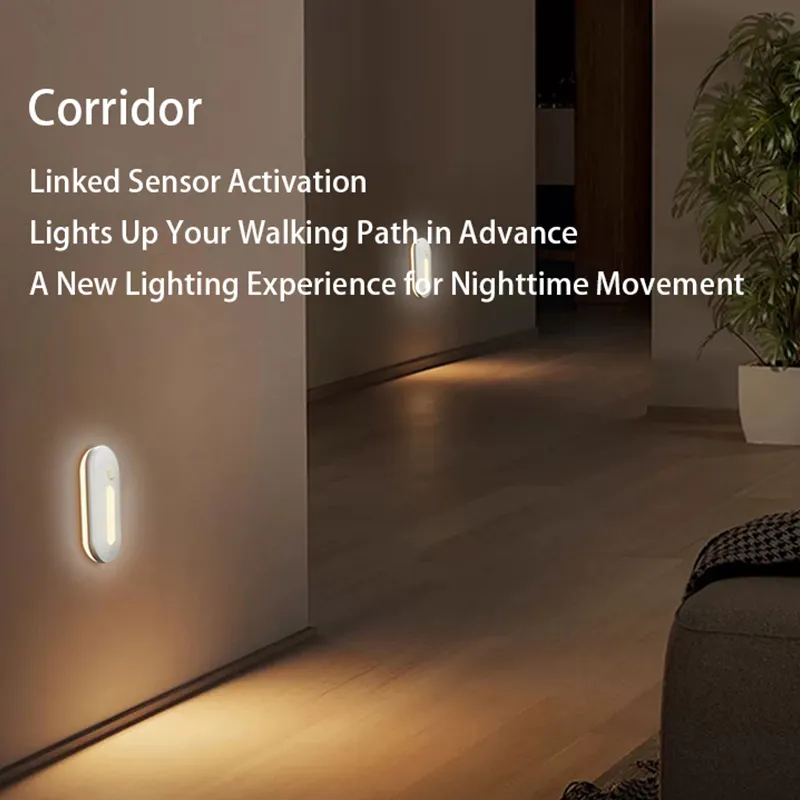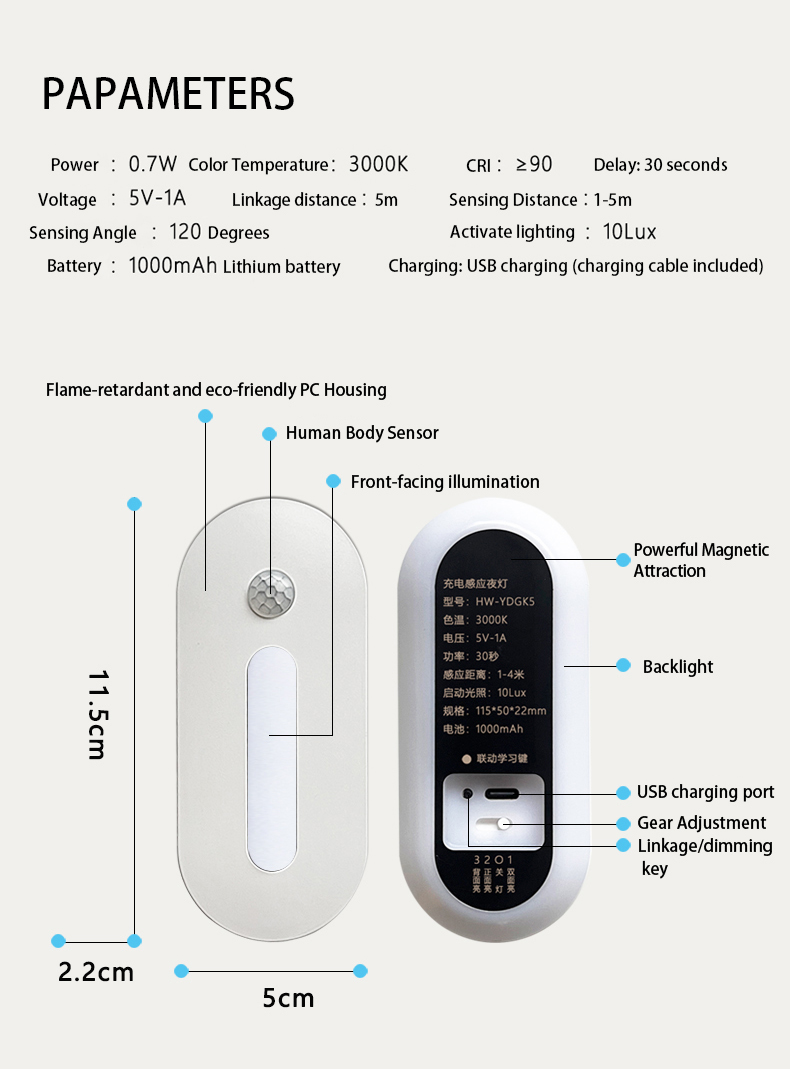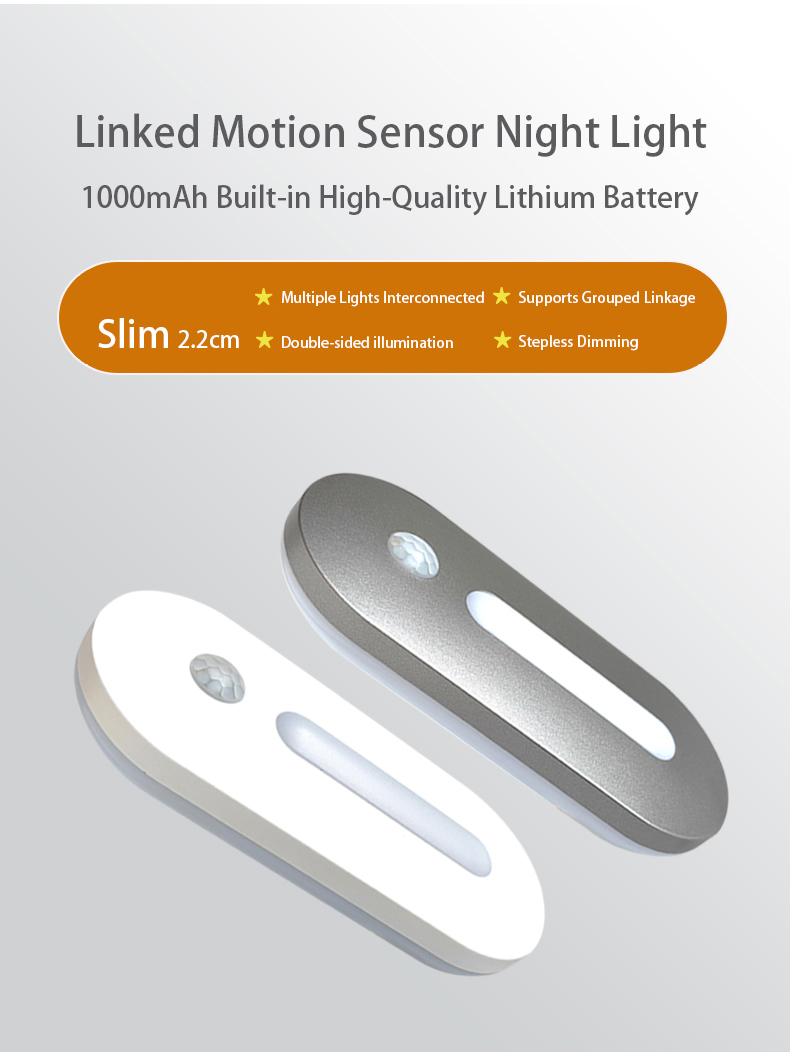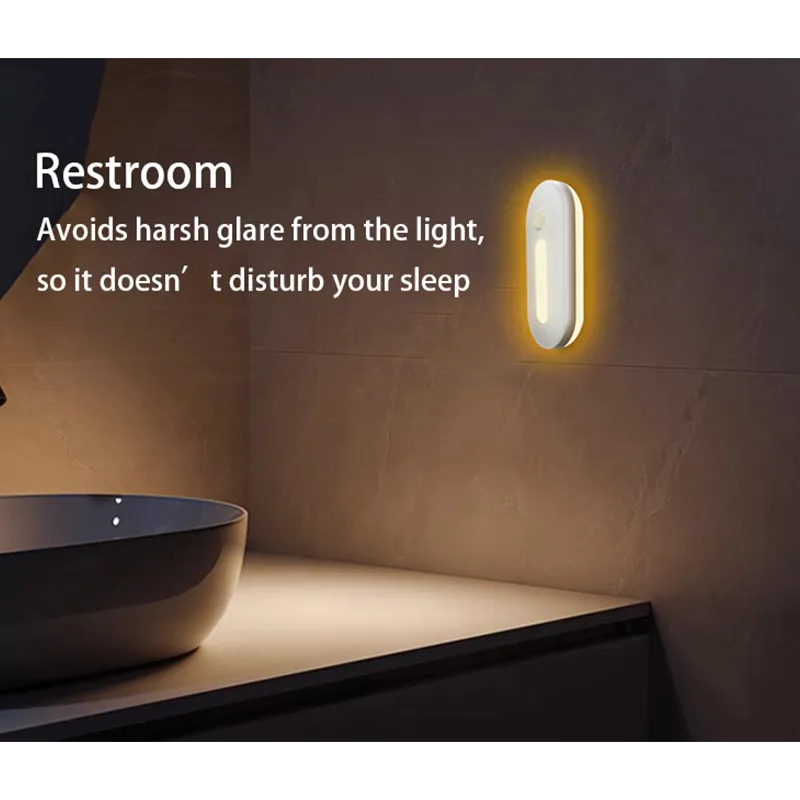Smart Motion Sensor Lights: How Many Hours Does it Take to Fully Charge?
Smart motion sensor lights, as intelligent lighting devices, have become a common fixture in modern homes thanks to their automatic sensing, energy-saving, and environmentally friendly features. These lights automatically turn on and off based on the presence of a person, bringing significant convenience to users. However, many people remain unsure about charging times, battery life, and battery performance. The question, "How many hours does it take to fully charge a smart motion sensor light?" is a common topic of concern.
This article will provide a detailed analysis of the question, "How many hours does it take to fully charge a smart motion sensor light?" By exploring the charging mechanism, battery types, and factors affecting charging time, we aim to help users better understand the product's features and key maintenance requirements.

What is a smart motion sensor light?
A smart motion sensor light is a lighting device that can sense the presence of a person and automatically turn on and off. It typically features a motion sensor that automatically turns on when it detects motion or heat, and automatically turns off when no one is present or has left the room. The core of this technology is the sensor, with common examples being PIR (passive infrared) and microwave sensors.
(1). PIR sensors detect infrared rays emitted by the human body to determine whether there is movement. Once movement is sensed, the light will turn on immediately.
(2). Microwave sensors use microwave signals to detect movement. They are more sensitive than PIR sensors, but consume relatively more power.
Most smart human body induction lights use LED light sources because of their high energy efficiency, moderate brightness and long life, which are particularly suitable for occasions that require frequent switching. The batteries of smart human body induction lights are mostly rechargeable batteries such as lithium batteries and nickel-metal hydride batteries.
How many hours does it take to fully charge a smart human body induction light?
The charging time of a smart human body induction light is one of the key factors affecting user experience. The time to fully charge varies depending on the different models of lights, battery types and charging technology.
1. Battery type and charging time
Smart human body induction lights usually use lithium batteries or nickel-metal hydride batteries. These two batteries have their own advantages and disadvantages. The charging time of the battery is also closely related to factors such as the battery capacity and the power of the charger.
• Lithium Batteries: Lithium batteries have a high energy density, providing a long battery life and fast charging. Generally, the lithium batteries used in smart motion sensor lights have a capacity of 600mAh to 2000mAh. Typically, a full charge takes approximately 2 to 4 hours using a standard charger. This provides fast charging and a long battery life.
• NiMH Batteries: NiMH batteries have a lower energy density and a relatively long charging time, typically requiring 4 to 6 hours to fully charge. Despite the longer charging time, they are generally more affordable and environmentally friendly.
2. Charger Power and Charging Time
The power of the charger used in a smart motion sensor light directly affects charging speed. Common chargers typically range from 5V 1A to 5V 2A. Higher-power chargers provide higher current, shortening charging time. Lower-power chargers, on the other hand, take longer to fully charge the light. Therefore, using the original charger provided by the manufacturer ensures optimal charging results.
3. The Impact of Charging Technology
With technological advancements, some newer smart motion sensor lights now support fast charging technology. This technology accelerates battery charging through higher voltage and current, typically fully charging in about an hour. However, not all smart motion sensor lights are equipped with fast charging technology, so users should confirm whether the product supports this feature before purchasing.

How long does a smart motion sensor light battery last?
In addition to charging time, the battery life and operating time of a smart motion sensor light are also important factors for users. Typically, a smart motion sensor light battery can last between 10 and 30 days on a single charge, with the specific operating time affected by several factors.
1. Frequency of Use
The battery consumption of a smart motion sensor light is directly related to frequency of use. If the light is used frequently (for example, left on for long periods of time or triggered frequently), the battery will drain faster and the charging cycle will be shortened. On the other hand, with less frequent use (such as occasional use), the battery can last longer.
2. Brightness
The brightness setting of a smart motion sensor light also affects battery life. Generally speaking, lower brightness levels result in slower battery drain and longer operating time. Selecting high brightness mode or frequently adjusting the brightness setting will increase battery consumption and shorten the charging time.
3. Sensor Sensitivity
The sensitivity of a smart motion sensor light's sensor directly affects how often it triggers. A more sensitive sensor will trigger the light with minimal movement, resulting in faster battery drain. A less sensitive sensor, on the other hand, requires more movement to trigger, thus extending battery life.
4. Environmental Factors
Environmental factors such as temperature and humidity can also affect battery performance. Both high and low temperatures can cause battery performance to degrade, shortening battery life. A suitable operating environment can improve battery stability and extend its lifespan.

How to Extend the Charging Cycle of a Smart Motion Sensor Light?
To extend the battery life of a smart motion sensor light, users can take the following measures:
1. Avoid Long Periods of Non-Use
If a smart motion sensor light is not used for an extended period, it is recommended to turn it off and charge it regularly to prevent over-discharge, which can shorten its lifespan. Many smart motion sensor lights have built-in overcharge protection circuits to prevent overcharging, but if left uncharged for extended periods, the battery may not be able to effectively retain its charge.
2. Properly Set Sensor Sensitivity
By adjusting the sensor's sensitivity, users can avoid unnecessary triggering. For example, in areas with low traffic, users can lower the sensitivity appropriately to reduce unnecessary on-off cycles, thereby reducing battery consumption.
3. Use High-Quality Batteries
Choosing high-quality batteries can effectively extend battery life. Although lithium batteries are more expensive, they have a high energy density and a long lifespan. Users should try to choose smart motion sensor lights with high-performance batteries.
4. Keep the Light Clean
Keeping the Smart Motion Sensor Light and its sensor clean helps ensure sensor sensitivity. Dust, dirt, and other debris can affect the sensor's operation, causing the light to trigger frequently and falsely. Regularly cleaning the light, especially the sensor, can improve its efficiency.
Smart motion sensor lights are a convenient and energy-saving smart home lighting tool widely used in homes, offices, hallways, and other areas. Regarding the question of "how long does it take to fully charge a smart motion sensor light?", the typical charging time is 2 to 6 hours. The specific charging time depends on various factors, including battery type, charger power, and charging technology.

How does Huari support customized brand projects?
Many international buyers come to Huari Lighting for OEM and ODM services. Our factory can design and manufacture customized LED lights tailored to different brand requirements. Whether you need promotional LED night lights with your logo, or customized cabinet and vanity lamps for retail chains, we provide flexible solutions.
